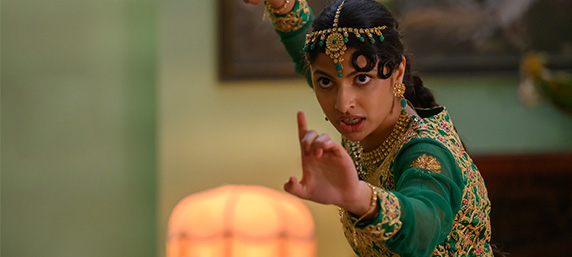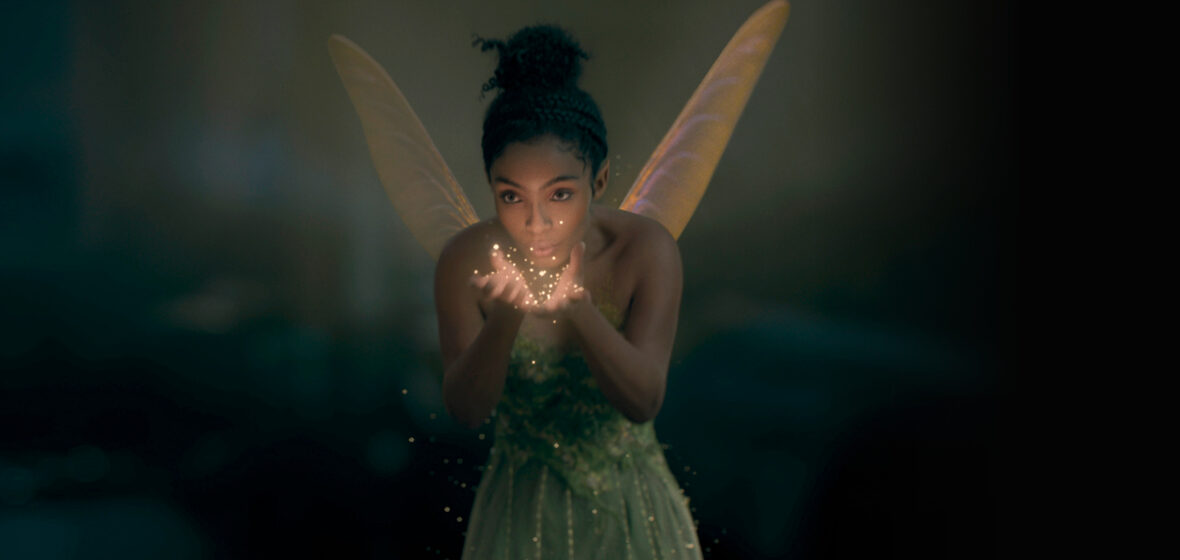Peter Pan & Wendy
I’m not in the habit of hiding my disdain for Disney’s live-action remakes of classic animated films.
My objections are not just about the spineless cash grab that feeds on the nostalgia of millennials who want to recapture the magic of a remembered time when their lives were easy and uncomplicated. And who are deluding themselves that doing so will hide the gloom of economic instability that rules their adult lives!
Yes, that’s part of my objection, but it’s also about how futile those films are. Drab pantomimes lack the colour and charm of the original. And it’s not as if the animated versions have been forgotten. The chokehold Disney has on pop culture is such that everyone who has a child, or is in a state of arrested development, has to sign up for the streaming service, where all the classics are ready and available. So there’s no need to try to find any emotion in the vacant glassy eyes of a computer-generated Simba in The Lion King (2019).
So imagine my surprise when Peter Pan & Wendy turned out to be a lovely little gem.
Hiring David Lowry and his writing partner, Toby Halbrook, was the right step. The two had already shown how well they could remake a Disney classic, with their 2016 version of Pete’s Dragon; but since then Lowry has become a staple of the new prestige indie American cinema, releasing for A24 A Ghost Story, that film where Rooney Mara eats a whole pie in real time, as well as last year’s The Green Knight.
In his return to the Disney ecosystem, Lowry asked himself the question that I reckon no other live-action remake has: why are we doing this? It couldn’t have been about copying the 1953 film. J.M. Barrie’s novel has since been quartered and scrutinised, from Spielberg’s faux sequel to that excruciating Joe Wright version where Hugh Jackman plays Captain Hook. Lowry and Halbrook understand that this new version shouldn’t try to recapture the original’s magic but build on it.
The story takes the beats of the animated film, but the filmmakers’ two twists set it apart. The first is positioning the film’s point of view through the eyes of Wendy (Ever Anderson), the de facto main character, and the second is centring the heart and soul of the film in the character of Hook (Jude Law), a tragic and complex villain.
This new approach makes Peter Pan & Wendy more adult. If the 1954 film is a children’s movie, Peter Pan & Wendy is for the twelve-year-old poised between reaching puberty and grasping the last straws of innocence. These two films can co-exist comfortably.
The big crocodile in the room is the, let’s say, problematic representation—namely, Tiger Lily. Here, played by Cree actress Alyssa Wapanatâhk, she’s given agency, language, and a celebration of her culture. The Lost Boys are a refreshing mishmash of the types of children who would have been abandoned in Victorian England – a child with glasses, twins, children of mixed race, and one with Down Syndrome (Noah Matthews Matofsky). It’s as if Lowry has set himself to not only give his version a new raison d’être but also to right the original’s wrongs.
The winner is Law, though. His Hook is sometimes menacing and sometimes heartbreaking, and he steers away from Disney’s villainous mannerisms. This adds both threat and grief to his story, and Law, who has been severely underused in the last several years, grabs the role by its thin moustache.
This is where Lowry shines. That approach of facing the inevitability of growth is lost on a child, which is why the original film had to live and die by its never-ending charm. J.M. Barrie’s book is best understood by someone who finds themselves between Hook and a hard Pan. But in the process Lowry sacrifices the children. Even Pan, played by Alexander Molony, is the film’s weakest link. Molony does the best with what he’s given, but it is evident that Lowry not only is not interested in him, but also finds him a nuisance.
Peter Pan & Wendy deserves to be released on the big screen. Lowry’s images are famously romantically epic, and it’s disappointing to be able to see them only on the small scale of our living room TV set. But we take what we can get; at least there is heart and soul in this lovely little film.
Verdict: 3 out of 5
For the young teen who loved Pan as a child and is ready for it to be taken up a notch.

Polite Society
I think a lot about how Western, Aristotelian rules heavily influence our storytelling tradition. Had we been untouched by the dominant cultural mode of colonialism, we could have seen reality in a different way, beyond the familiar three-act structure. Stepping outside of our bubble offers glimpses of that world that could be. Eastern Asia has its storytelling tradition, Africa has a different approach to oral history to the one we know, and North African humour is a whole world of its own.
I say this because Polite Society is the perfect convergence of several cultures in one crowd-pleasing romp. Parts of its machine are connected to Desi culture, East Asian culture, and the immigrant experience in modern-day London. This is a film that couldn’t have existed in a vacuum, born as it is from the storytelling traditions of billions of people throughout thousands of years. With its intent not to spearhead high art, but to please as many people as it can, Polite Society may be this year’s first genuine crowd-pleaser.
The film is written and directed by British-Pakistani filmmaker Nida Manzoor, her first feature after the roaring success of her TV show We Are Lady Parts, about a Muslim female-only punk rock band. The show is the kind of cultural event made to break barriers. It’s steeped in truth – Manzoor’s Pakistani family moved to London when she was 10 years old – in a quest to show an underrepresented culture through the eyes of those who inhabit it, rather than to meet the audience’s misguided expectations.
This is a film made from Manzoor’s diet of growing up watching Lollywood, Hong Kong martial arts films, and Edgar Wright comedies. And if there is a way to characterise the film, it is with these three tags.
Ria Khan (Priya Kansara) is a teen with the dream of becoming a stuntwoman like her idol stunt icon Eunice Huthart. Ria’s older sister, Lena (Ritu Arya), is an art college dropout with no current intention of settling, to the disappointment of their mother (Shobu Kapoor). Enter Raheela (Nimra Bucha) and her son Salim (Akshay Khanna), the most sought-after bachelor in the community – wealthy, successful and unreasonably attractive – wooing Lena as a marriage partner. Ria doesn’t want to see her sister settling into the life of a housewife, and goes on a quest to try and stop the wedding.
All of this action is interspersed with fast-paced martial fights that don’t disrupt the narrative, because Manzoor knows how to set up the style and the tempo effortlessly. So by the time a group of high school girls gather around to throw each other against the library shelves you’re already sure of the kind of film you’re watching.
Confidence may be Manzoor’s best trait. Despite budget limitations, she doesn’t tone down the action her premise promises. The result is joyful, with more soul than anything Marvel has made with 200 times the budget. If there’s any justice in the world, Marvel is now calling her to pitch an idea, and I hope she will tell it to take a hike. Manzoor’s talents would be wasted in the characterless machine of films made as a result of marketing research and analytics.
Verdict: 4 out of 5
For every Muslim girl out there waiting to be seen, and everyone else wanting to have fun. Remember fun? This is fun.




